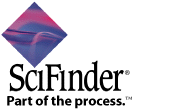
Kumar, Srivastava and Dixit report in the Journal of Horticultural Science & Biotechnology (2008, p.749-54) that a sugar/alcohol solution successfully extended the vase-life of cut roses.
Adding a 3% sucrose + 3% ethanol solution to vase water increased water uptake and delayed senescence in several varieties of roses.
This is a simple alternative to treatments such as aminoethoxyvinylglycine, aminooxyacetic acid, or silver thiosulphate, commonly used in the commercial flower market.
[image = Flickr, Creative Commons]












